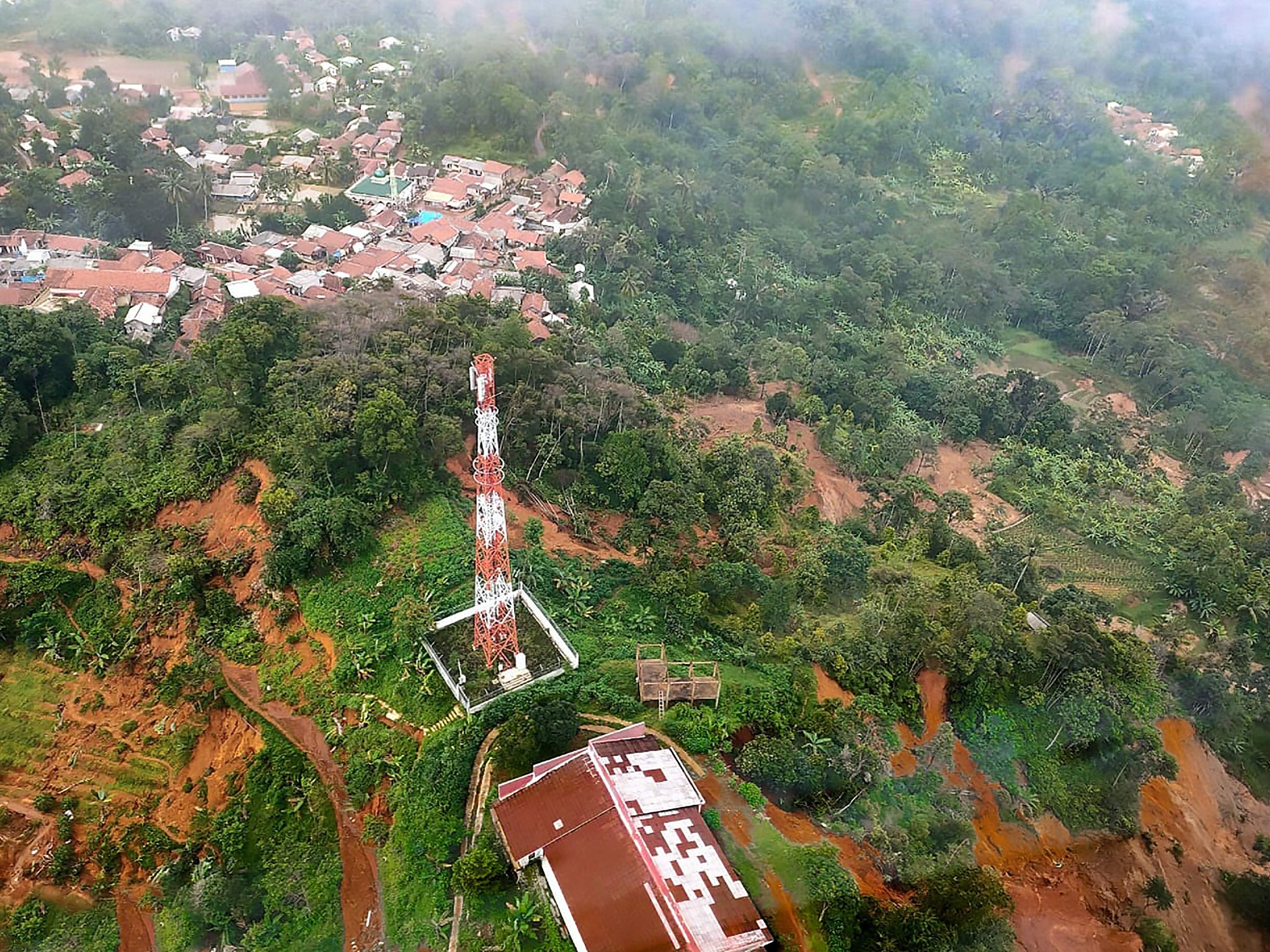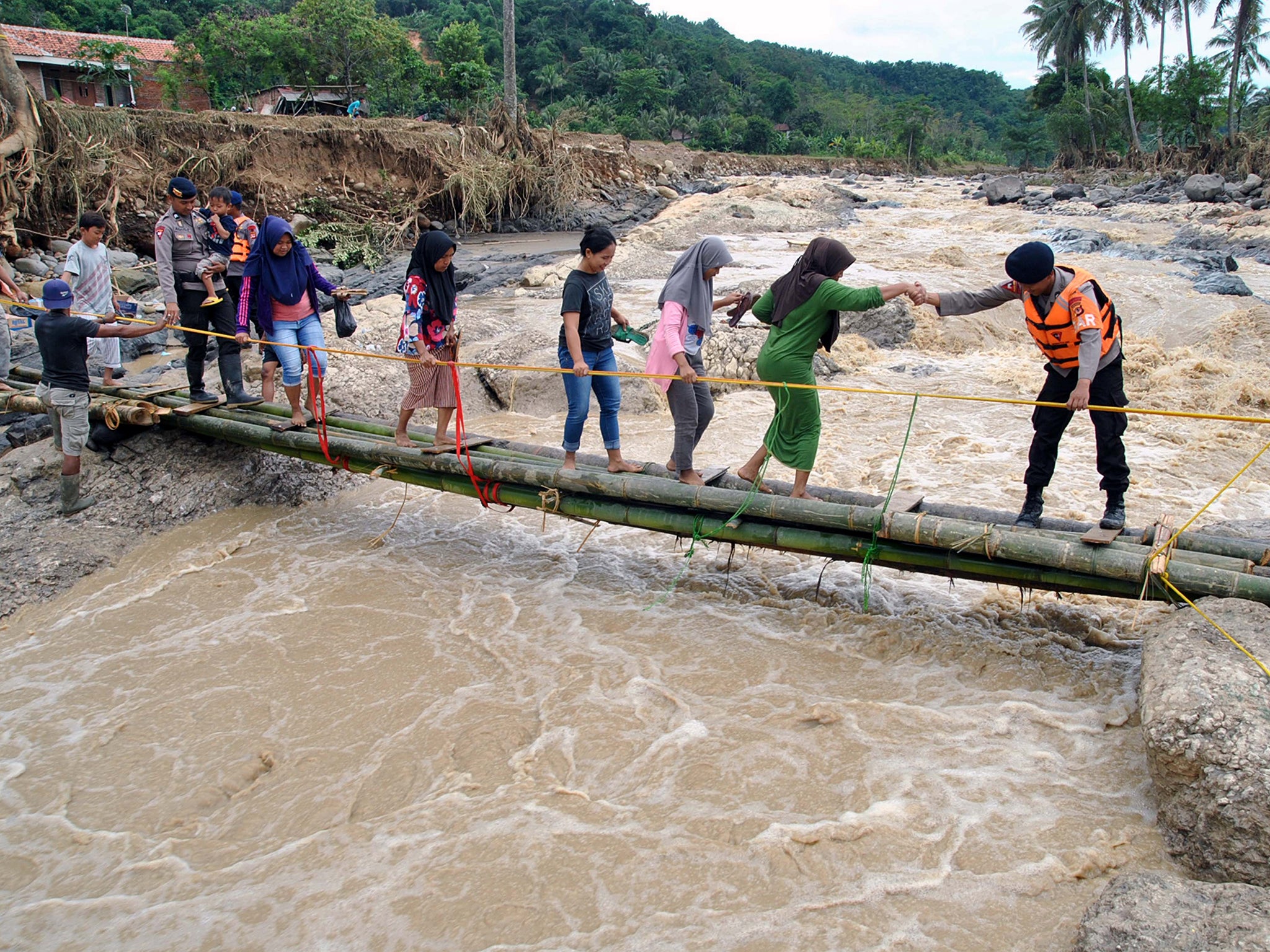Indonesia floods: At least 50 killed as landslides hit Jakarta
Monsoon rains submerging large parts of capital
Your support helps us to tell the story
From reproductive rights to climate change to Big Tech, The Independent is on the ground when the story is developing. Whether it's investigating the financials of Elon Musk's pro-Trump PAC or producing our latest documentary, 'The A Word', which shines a light on the American women fighting for reproductive rights, we know how important it is to parse out the facts from the messaging.
At such a critical moment in US history, we need reporters on the ground. Your donation allows us to keep sending journalists to speak to both sides of the story.
The Independent is trusted by Americans across the entire political spectrum. And unlike many other quality news outlets, we choose not to lock Americans out of our reporting and analysis with paywalls. We believe quality journalism should be available to everyone, paid for by those who can afford it.
Your support makes all the difference.Landslides and floods triggered by torrential downpours have left at least 53 people dead in and around Indonesia’s capital, officials have said.
Monsoon rains and rising rivers submerged a dozen districts in the greater Jakarta area and caused landslides that buried at least a dozen people.
National Disaster Mitigation Agency spokesman Agus Wibowo said the fatalities included those who had drowned or been electrocuted since rivers broke their banks early on Wednesday after extreme torrential rains hit on New Year’s Eve.
Three elderly people died of hypothermia.
It is the worst flooding in the area since 2007, when 80 people were killed over 10 days.
Rescuers recovered more bodies as flash floods and mudslides destroyed Sukamulia village in Bogor district.
They were searching for a villager who was missing in a landslide in Lebak, a district in neighbouring Banten province, Mr Wibowo said.
The number of fatalities was expected to increase, with rescuers and villagers also searching for at least three people believed to be buried in another landslide in Cigudeg village in Bogor district, said Ridwan, the village’s secretary, who goes by a single name.
Mr Ridwan said bad weather, blackouts and mudslides were hampering rescue efforts.
He said rescuers on Saturday managed to reach eight hamlets that had been isolated for days by cut-off roads and mudslides, and had rescued more than 1,700 villagers in weak condition.

Four days after the region of 30 million people was struck by flash floods, waters have receded in many middle-class districts, but conditions remained grim in narrow riverside alleys where the city’s poor live.
Government data showed that some 173,000 people were still unable to return home and were crammed at damp emergency shelters, mostly in the hardest-hit area of Bekasi.

Much of the city was still submerged in muddy waters up to two metres high, according to the disaster agency.
Indonesia’s Meteorology, Climatology and Geophysics Agency said that more downpours were forecast for the capital in the coming days, and that the potential for extreme rainfall will continue until next month across the vast archipelago nation.
The government on Friday started cloud-seeding in an attempt to divert rain clouds from reaching greater Jakarta to prevent possible flooding, the agency said.
Indonesia is hit by deadly floods each year, and Jakarta, the capital of southeast Asia’s largest economy, is not immune.
But this year’s have been particularly bad, with about 397,000 people seeking refuge in shelters across the greater metropolitan area as floodwaters reached up to six metres in some places.
Associated Press

Join our commenting forum
Join thought-provoking conversations, follow other Independent readers and see their replies
Comments